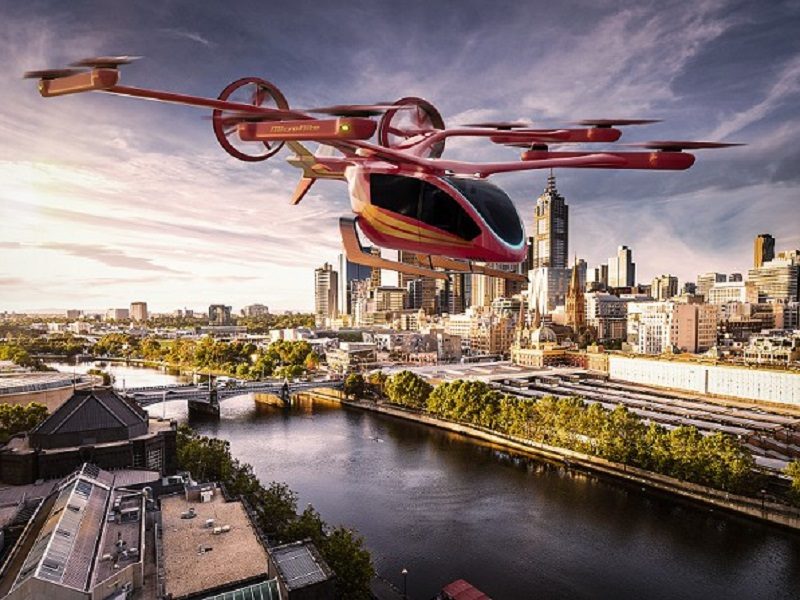
The U.S. Department of Transportation is calling for public input on safety challenges and general acceptance of AAM (advanced air mobility) operations in the airspace. (Photo: Eve Air Mobility)
To prepare a blueprint for advanced air mobility (AAM) operations in the U.S., the Department of Transportation is calling for public input on safety challenges and general acceptance of air taxis and other electric aircraft ferrying passengers short distances in the national airspace.
The Department of Transportation is required by law to invite public comment on advanced air mobility under the Advanced Air Mobility Coordination and Leadership Act passed by Congress in 2022. DOT has formed an interagency working group to gather public comment in preparation for a national AAM strategy scheduled for publication in 2024, according to a request for information posted in the Federal Register on Wednesday.
“The purpose of the strategy is to ensure the federal government, in partnership with state, local, and tribal entities, is ready to work with and oversee the AAM industry, including developing new transportation options, amplifying economic activity and jobs, advancing environmental sustainability and new technologies, and supporting emergency preparedness and American competitiveness so that the United States continues to lead the world in aviation into the 21st century,” the RFI says.
DOT already has some idea of how AAM will debut and evolve as a transportation option in the U.S. AAM likely will begin as “piloted flights using traditional air traffic control procedures and existing regulatory structures,” the RFI says. The emerging field of transportation currently involves novel aircraft, many of them electric vertical take-off and landing designs, or eVTOLs.
“However, more ubiquitous and economical AAM operations are expected to require development of new technologies, procedures, and regulations that incorporate highly automated, unpiloted aircraft flying at lower altitudes with smaller areas of separation than in current operating environments,” according to the RFI. “Given the importance of safety and security to the success of a future AAM system, the DOT requests comments on safety challenges and related subjects.”
The burgeoning AAM industry foresees eVTOL aircraft expanding the reach and efficiency of current transportation networks by providing relatively short shuttle services between airports and urban centers. They also could augment the established network of helicopter-based medical evacuation and emergency response services. On the commercial side, eVTOL aircraft can rapidly transport cargo to job sites and provide “on-demand air services between regions without existing rapid, reliable transportation links,” the DOT says.
These aircraft could “provide new levels of accessibility, convenience and connectivity for people and cargo—and thus transform our nation’s transportation system to provide enhanced mobility for the traveling and shipping public,” according to the DOT.
Members of the public can submit comments to the DOT through July 17 by email at [email protected], through the federal government’s rulemaking portal, or by mail to the U.S. Department of Transportation in Washington, DC.